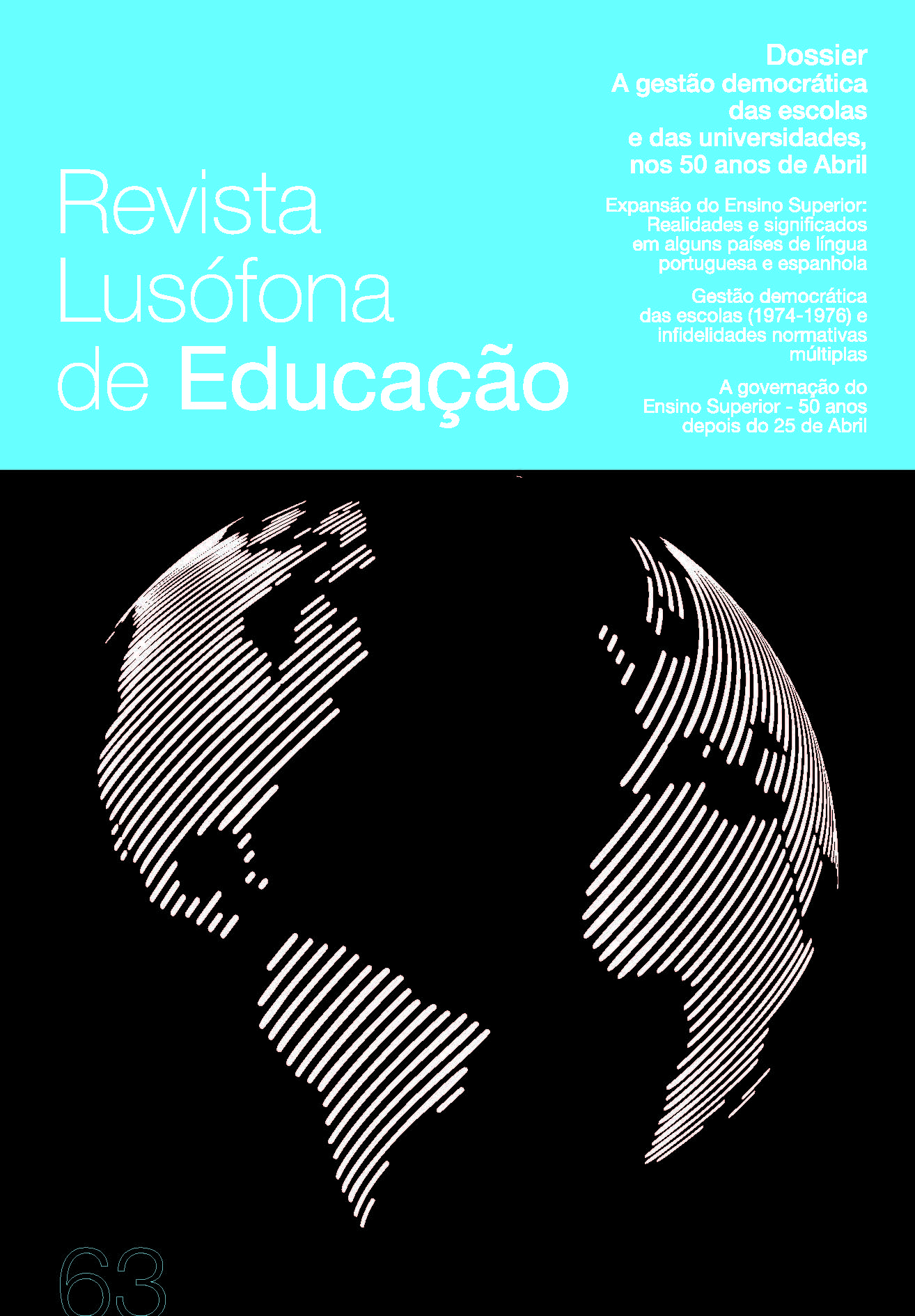Democratic management of schools (1974-1976) and multiple normative infidelities
Abstract
During the revolutionary period after April 25, 1974, actions took place in several Portuguese schools
with a view to replacing school directors, appointed by the authoritarian regime, with elected collegiate bodies. This began in the first days following the coup d’état, which was soon transformed into a revolution, through different processes, initially without authorisation from the first provisional government. Just a month after the beginning of those practices, they were legally recognised and their generalisation to other schools in the country was authorised. Until the end of 1976, there were dynamics of school self-government led by deliberative assemblies, composed of teachers, deciding on multiple issues, well beyond what was permitted by current legislation, to such an extent that these assemblies were legally removed by a decree in December 1974. In practice, however, plenary meetings continued to take place and decide on a wide range of issues, configuring what the author called far-reaching normative infidelities and which, in turn, revealed the capacity to engender subsequent and multiple normative infidelities, with expression in almost all areas of school decision-making and management.
Keywords: democratic management; self-government; normative infidelities
Downloads
-
Authors retain copyright of their work, without any payment, and grant the journal the right of first publication. The work is simultaneously licensed under a Creative Commons Attribution 4.0 International License (CC BY 4.0), which allows others to share (copy and redistribute the material in any medium or format) and adapt (remix, transform, and build upon the material for any purpose, even commercially), provided that proper credit is given to the author(s) and the initial publication in RLE is acknowledged.
-
Authors are permitted to enter into separate, additional contractual arrangements for the non-exclusive distribution of the version of the work published in this journal (e.g., depositing it in an institutional repository or publishing it as a book chapter), provided that authorship and initial publication in RLE are acknowledged.
-
Authors are allowed and encouraged to post and disseminate their work online (e.g., in institutional repositories or on their personal websites), as this can increase the visibility and citation of the published work (see The Open Access Effect).








